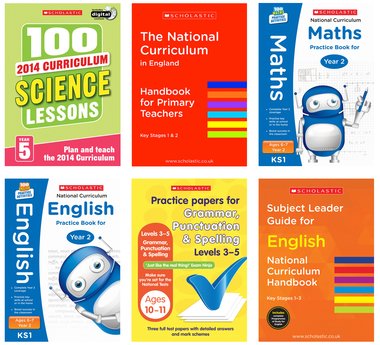The Education Insider: A light at the end of the tunnel?
In her latest post for us, education expert Jodie Lopez discusses the Education Select Committee’s latest report on primary assessment and sets out the key points you need to know.
On 1st May the Education Select Committee released their latest report in primary assessment and I can tell you that it is well worth setting aside the time to have a good, thorough read through. Until you have time for that I just want to comment on a few of the conclusions and recommendations that I was particularly happy to see. Please note that these are the first sentences of each of the chosen conclusions not the full statement so extra context and information can be found in the full report and, of course, my own artistic licence will be in play in terms of how much of the statement I felt was worth including here for comment!
1. The Government must introduce longer lead in times for future changes to assessment or standards to mitigate the negative impacts of constant change, and the process of communication must be improved.
Yes, yes, a thousand times yes! It is true testimony to the professionalism and dedication of teachers that students were ready for testing at all in 2016. In most other professions such delays, as which were endured, would have resulted in a deadline being pushed well back!
2. We welcome the Rochford review and look forward to seeing the implementation of its conclusions. (Paragraph 38)
There is a section on the inclusiveness of the tests for pupils with SEND which is well worth a read so I wanted to highlight that but do read the paragraph mentioned for more information.
3. National curriculum levels were removed without enough support in place for schools to implement their own assessment systems successfully.
I have heard from many teachers and schools that they have felt a lack of support at DfE level. Although LAs et al have stepped into the breach, I have seen myself, while visiting schools around the country, huge variances depending on the support made available from different Local Authorities, MATs and even external consultants. Lack of standardisation in this has caused variances in data, as discussed in a previous blog.
4. Many teachers reported ‘teaching to the test’, narrowing of the curriculum and increased pressure and workload as a result of statutory assessment and accountability.
As discussed in another previous blog, there are accounts of schools specifically narrowing the curriculum even within core subjects to meet test and teacher assessment requirements. I have never met a teacher who would like to think they are teaching to the test but it is inevitable that they try and prepare children the best they can for them.
5. Ofsted should ensure that it reports on a broad and balanced curriculum in every primary school report.
This I welcome and worry about in equal measure. I like the idea of Ofsted ensuring that schools do not narrow the curriculum to include just maths and English all day long. Yet I don’t feel any respite will be given on the pressures of meeting requirements in SATs for maths and English. So this, a benefit to pupils of ensuring a broad and balanced curriculum, becomes even more pressure on teachers who may then feel they have to assess and evidence every other subject as often and as in-depth as they do with core subjects.
6. Many of the negative effects of assessment are in fact caused by the use of results in the accountability system rather than the assessment system itself.
I could have quite happily just put this statement on the blog and left no comment, but that would have been really lazy. But yes. This. It’s all about this. No teacher I know would advocate never testing whether children know the stuff they have been teaching. No one wants children to have gaps in learning which are not picked up and acted upon. Problems do occur, however, when high stakes accountability is discussed more than the learning. SATs tests and assessment in Years 2 and 6 actually account for a tiny proportion of the school lives of primary children, yet the time and priority given to discussing them, both in the media and in some past inspections of schools, could easily make it seem like primary education = SATs. This is not actually the case. Ofsted are going to great lengths to show schools that they look at a much wider picture than simply results and it is refreshing to hear feedback from schools who have been inspected recently and found it a much “fairer” experience than in previous years. There is still work to be done but this is a very promising start. This report is also a welcome view from the Education Select Committee and another spark of hope for further evolution of the accountability system.
Jodie is an award winning ex-primary teacher who now works as a Freelance Edtech Consultant. Her interest in using technology in education has led to her working with a number of educational technology businesses since leaving the classroom. Most recently she has been Head of Education for an assessment system provider and has specialised in helping schools to transition to the new curriculum and leaving levels behind. Follow her on Twitter here.
Similar Posts
-
The Education Insider: Who are we even doing this for?!
In her latest post for us, education expert Jodie Lopez discusses the importance of changing the SLT conversation so that teachers know exactly who their assessment data is for.
-

The Education Insider: Can summative assessment become formative?
In her latest post for us, education expert Jodie Lopez discusses looking at testing in a positive way; using children’s results as a basis for delivering targeted support.
-

The Education Insider: This is not the data you are looking for
In her fourteenth post for us, education expert Jodie Lopez discusses why it’s so important to devote some time to gap analysis in a life after levels.
